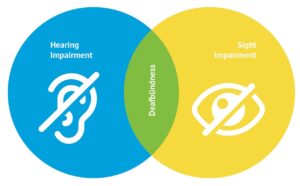By Dr. Rana Koshaha
Introduction
Over the past two years, mental health has taken a more central place—not just in medical circles, but also in everyday conversations. This shift has come hand in hand with significant changes in how psychological care is delivered, prompting professionals to think beyond traditional models. Among the most prominent approaches are digital therapy and group therapy—different in form, yet united in purpose: meeting individuals where they are and supporting them in ways that resonate with their lives.
Digital Therapy: A Screen Between Us, Yet the Impact Remains
As our lives become increasingly fast-paced and tech-reliant, digital therapy has evolved into a legitimate choice, no longer just an emergency alternative. Today, individuals can connect with licensed therapists from anywhere, often without having to leave their homes.
Recent studies, including one published in JMIR Mental Health, suggest that online cognitive behavioral therapy (CBT) yields comparable outcomes to in-person therapy, particularly for anxiety and depression. In the Arab world, promising digital platforms like MindTales in the UAE and regional services are showing the potential of culturally aligned digital care. While still in early stages, these efforts mark a step toward breaking geographical and cultural barriers in mental health support.
Group Therapy: When Healing Is Shared
Unlike individual therapy, which focuses on the therapist-client dynamic, group therapy offers a unique space where people with similar challenges can reflect, relate, and heal together. These sessions don’t just provide cognitive and behavioral tools; they foster a deep sense of community and mutual support.
In recent years, this approach has found its way into universities, corporate wellness programs, and even humanitarian initiatives for displaced populations. A study published in The Lancet Psychiatry showed that trauma-focused group therapy significantly reduced PTSD symptoms among refugees. Interestingly, virtual group sessions via platforms like Zoom have also proven effective, especially among youth who find remote participation more comfortable than in-person confrontation.
Blended Models: Technology Meets Human Connection
A growing trend is the integration of digital convenience with the interpersonal value of group settings. Some mental health services now offer fully virtual or hybrid group therapy sessions, providing a scalable and flexible solution—especially useful in educational institutions and workplaces with high demand for support.
Perspective from the UAE: Ground-Level Insights
As a practicing therapist in the United Arab Emirates, I’ve observed a growing openness to alternative formats of mental health care. In a society as dynamic and multicultural as the UAE, digital and group therapy offer practical, culturally sensitive options for addressing emotional wellbeing.
Initiatives like the UAE National Wellbeing Strategy 2031 reflect the country’s commitment to mental health, creating space for us as professionals to innovate and grow. Still, the successful adoption of these approaches depends on continuous training, ethical handling of data, and equitable access—particularly for underserved populations.
Conclusion: The Future Has Already Begun
The shift in how we approach mental health care is no longer theoretical—it is happening now. With new tools making support more accessible and adaptive, we are redefining what it means to be there for someone.
Whether through a screen or in a room of strangers bound by shared struggle, hope is very much alive—if only we know how to make room for it.
References:
- Andrews, G., Basu, A., Cuijpers, P., et al. (2023). Digital cognitive behavioral therapy for depression and anxiety: A systematic review and meta-analysis. JMIR Mental Health, 10(1), e40052.
- Hassan, G., Ventevogel, P., Jefee-Bahloul, H., et al. (2022). Group therapy for PTSD in displaced populations: Results from a multi-country trial. The Lancet Psychiatry, 9(5), 345–355.
- World Health Organization – Eastern Mediterranean Regional Office. (2024). Digital Mental Health Interventions in the Gulf: Regional Evidence and Recommendations. WHO EMRO Publications.
- Al Mazrouei, A., & Khan, S. (2024). Virtual maternal support groups and postpartum depression: A UAE-based pilot study. Frontiers in Psychology, 15.
- https://doi.org/10.3389/fpsyg.2024.123456
- Dubai Health Authority. (2023). Mind Health Platform Launch Report. Dubai: DHA Publications.
Ministry of Community Development. (2023). Digital Outreach for Seniors and Caregivers: National Wellbeing Strategy Implementation Report. Abu Dhabi: MOCD.





